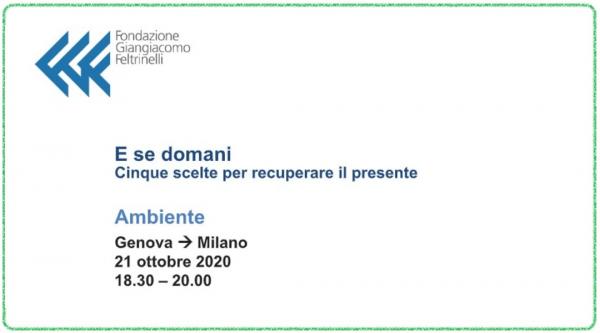We live in a complex and interconnected world: when a balance is shifted, even if only slightly, everything must somehow be rearranged. The coronavirus epidemic has clearly explained this concept to us by knocking on the door: we must find a way that leads to a form of balance between man and nature and to a trade-off of the needs of both. We must find a way out of the purely anthropocentric approach of our social and economic models and we must welcome points of view that help us understand the complexity and interconnections that, in contingency, bind man to the reality of the surrounding environment. The fragility of natural ecosystems and human ecosystems is evident in the territorial criticalities that jump out at every change in climate or weather. The dynamics of reaction to these forms of fragility and vulnerability, therefore, are of great importance and of great urgency. The vulnerability of the ecosystem involves man and the vulnerability of man ends up modifying ecosystems: this issue and these relationships must enter public policies in a key of mutual care and respect. But how? What relationships must exist or be built between ecosystems, communities and policies? What new pact between man and the environment will be able to support development opportunities that facilitate compliance with natural dynamics and human urgencies?

